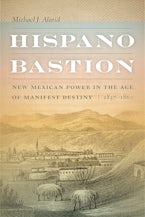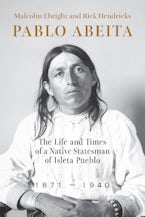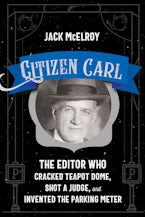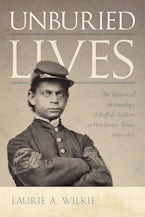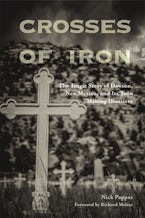- Home
- Querencias Series
- history
- social science
- Querencia
Querencia
Reflections on the New Mexico Homeland
Edited by Vanessa Fonseca-Chávez, Levi Romero and Spencer R. Herrera
Foreword by Rudolfo Anaya
Published by: University of New Mexico Press
New Mexico cultural envoy Juan Estevan Arellano, to whom this work is dedicated, writes that querencia "is that which gives us a sense of place, that which anchors us to the land, that which makes us a unique people, for it implies a deeply rooted knowledge of place, and for that reason we respect it as our home."
This sentiment is echoed in the foreword by Rudolfo Anaya, in which he writes that "querencia is love of home, love of place." This collection of both deeply personal reflections and carefully researched studies explores the New Mexico homeland through the experiences and perspectives of Chicanx and indigenous/Genízaro writers and scholars from across the state. The importance of querencia for each contributor is apparent in their work and their ongoing studies, which have roots in the culture, history, literature, and popular media of New Mexico. Be inspired and enlightened by these essays and discover the history and belonging that is querencia.
Vanessa Fonseca-Chávez is an assistant professor of English at Arizona State University and the coeditor of Spanish Perspectives on Chicano Literature: Literary and Cultural Essays.
Levi Romero is currently a visiting Research Scholar in the School of Architecture and Planning at UNM, focusing on architectural and cultural landscapes studies.
Spencer R. Herrera is an associate professor of Spanish at New Mexico State University. He is the author of several books and is a coauthor of Sagrado: A Photopoetics Across the Chicano Homeland (UNM Press).
Rudolfo Anaya, widely acclaimed as one of the founders of modern Chicano literature, is professor emeritus of English at the University of New Mexico. Anaya was presented with the National Medal of Arts for literature in 2001 and his novel Alburquerque (the city's original Spanish spelling) won the PEN Center West Award for Fiction. He has also received the Premio Quinto Sol, the national Chicano literary award, the American Book Award from The Before Columbus Foundation, the Mexican Medal of Friendship from the Mexican Consulate, and the Western Literature Association's Distinguished Achievement Award. He is best known for the classic Bless Me Ultima.
"(Querencia) is filled with meaningful, important stories and discourse that prove how the use and importance of storytelling, memories, and activism shape communities, identities, and history."--Carolynn Salazar, Panhandle Plains Historical Review
"Querencia's strength is its ability to foster conversations among the various peoples that populate the Land of Enchantment so that stories are shared and multiple narratives can hold meaning at once."--Daniel Arbino, Western American Literature
"Querencia's evocative prose and engagement with contemporary politics make it an accessible and timely reassessment of New Mexico's historical consciousness, while interlocking geographies of race, gender, and colonialism grant it a broader relevance as a robust framework for borderlands history."--Joseph Ukockis, Western Historical Quarterly
"Vanessa Fonseca-Chávez, Levi Romero, and Spencer R. Herrera bring together in Querencia fifteen Chicanx, Indigenous, and Genízaro writers and scholars whose work provides an insightful and well-considered approach to the ever-complex relationship between place, land, identity, and culture."--Jorge A. Hernández Jr., New Mexico Historical Review
"Inspiring and thought-provoking."--The Literary West Review
List of Illustrations
Foreword. Querencia, mi patria chica
Rudolfo Anaya
Agradecimientos y Reconocimientos
Introduction. Mi Querencia: A Connection between Place and Identity
Levi Romero
Part I. Community Querencias
Chapter One. The Long, Wondrous Life of Ventura Chávez, 1926-2013
Simón Ventura Trujillo
Chapter Two. Remapping Patriotic Practices: The Case of the Las Vegas 4th of July Fiestas
Lillian Gorman
Chapter Three. Critical Reflections on Chicanx and Indigenous Scholarship and Activism
Kevin Brown, Vanessa Fonseca-Chávez, Tey Marianna Nunn, Irene Vásquez, Myla Vicenti Carpio
Part II. Screening Querencias
Chapter Four. Contested Querencia in The Last Conquistador by John J. Valadez and Cristina Ibarra
Vanessa Fonseca-Chávez
Chapter Five. Deep Roots in Community: Querencia and Salt of the Earth
Karen R. Roybal
Chapter Six. New Mexico Triptych: Querencia Etched in Wood, in Media, and in Our Memory
Spencer R. Herrera
Part III. Memory as Querencia
Chapter Seven. (Re)Signifying Gender and Sexuality for the Nuevomexicana Historical Body: The Politics of Reading Place in Women's Tales from the New Mexico WPA: La Diabla a Pie
Bernadine Hernández
Chapter Eight. Erasing Querencia from Los Alamos: Racist and Sexualized Portrayals of New Mexican Women and Place in the Television Series Manhattan
Myrriah Gómez
Chapter Nine. Mestiza Consciousness a la MeXicana in Ultima and Agueda Martínez: Bridging and Legitimizing Querencia in the Borderlans
Norma A. Valenzuela
Part IV. Cultural Landscapes of Querencia
Chapter Ten. Ak'u, Beloved
C. Maurus Chino
Chapter Eleven. Homeland Security: Sustaining Indigenous Culture and People through Narrative (Re)Remembering and Future (Re)Imagining in Simon Ortiz's Men on the Moon and Woven Stone
Jonathan Wilson
Chapter Twelve. La Querencia: The Genízaro Cultural Landscape Model of Community Land Grants in Northern New Mexico
Moises Gonzales
Part V. Storytelling as Querencia
Chapter Thirteen. La Llorona as Querencia: Shared Stories and Sense of Place
Kelly Medina-López
Chapter Fourteen. The Revolution Begins at La Cocina!
Patricia Marina Trujillo, Corrine Kaa Pedi Povi Sanchez, and Scott Davis
Chapter Fifteen. Following the Manito Trail: A Tale of Two Querencias
Levi Romero
Contributors
Index

